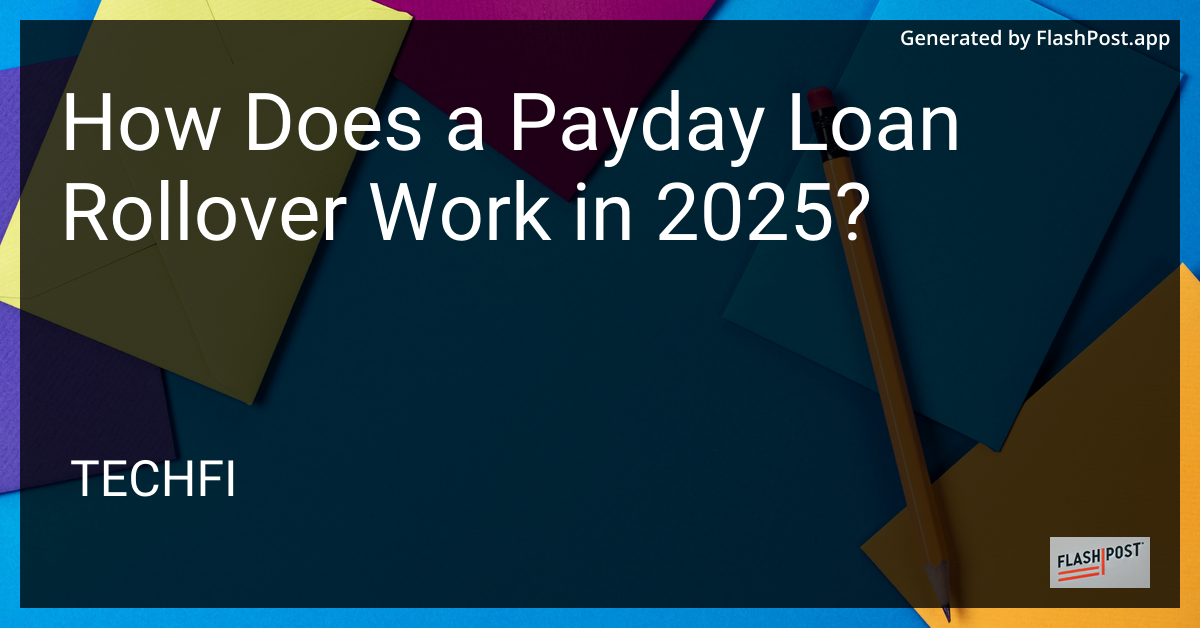How Does a Payday Loan Rollover Work in 2025?

In the fast-paced world of personal finance, payday loans are a popular option for individuals in need of quick cash. However, if you're unable to repay the loan by the due date, you might consider a payday loan rollover. But how does this process work in 2025, and what implications does it have for your financial health?
Understanding Payday Loans
Before diving into rollovers, it's important to understand what payday loans are. A payday loan is a short-term, high-interest loan that is typically due on your next payday. These loans don't usually require a credit check and are popular for their quick approval process.
What is a Payday Loan Rollover?
When you're unable to repay a payday loan by the due date, a rollover option may be offered or requested. A payday loan rollover allows you to extend the due date of your loan, essentially delaying the repayment for an additional period. This extension usually comes with additional fees and interest, increasing the overall cost of the loan.
How Payday Loan Rollovers Work in 2025
In 2025, regulatory measures around payday loans and rollovers have become stricter in many regions. Here's a step-by-step guide on how rollovers generally work:
Eligibility Check: Not all lenders offer rollovers. Ensure your lender provides this option and check the new interest rates and fees.
Approval Process: You need to formally apply for a rollover before your due date. The lender will confirm the new terms with you.
Payment of New Fees: To process a rollover, you're typically required to pay the current loan interest and any additional fees. The principal amount is then extended to the next payday.
Impact on Finances: The rollover increases the cost of borrowing due to added fees and accumulated interest. It's essential to evaluate if this is the best option for your situation.
Consider Alternatives to Rollovers
While a payday loan rollover might provide temporary relief, it's crucial to explore other options like debt consolidation or financial counseling services. These options may provide a more sustainable solution to ongoing debt issues.
The Future of Payday Loans
Regulations continue to evolve, affecting how payday loans and rollovers operate. Borrowers are encouraged to remain informed about changes in legislation that might impact loan terms and consumer protection rights.
Conclusion
Payday loan rollovers can be a quick fix for repayment issues but often lead to increased debt. Understanding how these rollovers work and their implications can help in making informed financial decisions. Always consider alternative solutions and stay updated with evolving regulations in the payday loan industry. For more information on how payday loans can impact your credit, check out this resource.
By keeping informed and exploring various financial options, you can better manage payday loans and rollovers in the year 2025.